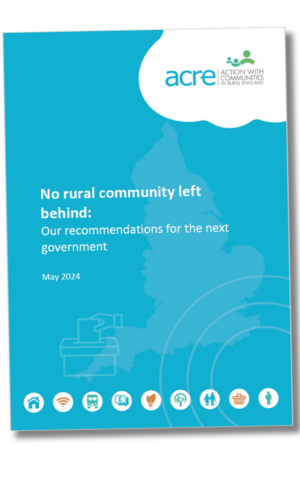Four things the government can do to make homes affordable in the countryside
2 July 2024
Phillip Vincent, ACRE’s Public Affairs and Communications Manager discusses the need for the next government to take urgent action to address the housing crisis in a blog for #RuralHousingWeek
The cost of living has been at the forefront of people’s minds during the 2024 general election. Polling by YouGov last month indicated that almost half of people said this was the most important issue influencing how they would vote on 4 July.
It reflects the fact many people are seeing a profound disparity between their earnings and the amount of money they need to spend to maintain a basic standard of living. The problem is widespread, and as we have detailed previously, the crisis is being keenly felt in the countryside.
Perhaps the biggest pressure acting upon rural communities is the cost of accommodation. People are spending more and more simply to keep a roof over their head in the countryside, whether that be to buy or rent.
Earlier this year, the County Councils Network estimated the average house price in the countryside to be £309,000; equivalent to 11.1 times the average annual wage. Prohibitive sale prices were cited to have fuelled a 31% increase in the number of households renting privately between 2011 and 2021. But of course, renting has a reputation for leaving people even more at the mercy of the market both in terms of supply and cost. Rural areas in particular have been impacted by the growth in short terms lets and second homes. According to official data there are many rural parts of the South East and Cotswolds where households are paying more than 40% of their household income on rent, not to mention the risk of eviction and disrepair that comes with this tenure.
As part of #RuralHousingWeek, ACRE is joining other organisations led by the National Housing Federation (NHF) in highlighting the need for a long-term plan to deliver genuinely affordable housing in the countryside. It is our firm belief that increasing the supply of these homes not only stands to bring down the cost of living for households, but it can also act as a multiplier stimulating investment in the rural economy, creating jobs, and sustaining services. We also believe these homes should be well designed, quality homes of which local communities can be proud.
So how can this be done? Not long before the election was called we published our recommendations for the next government called ‘No rural community left behind’. Broadly speaking, it makes the case for the following interventions.
The manifestos released by the main political parties highlight housing as a key concern. ACRE will be scrutinising how the next government acts upon the promises made and proactively work with policy makers to share our experience and make sure no rural community is left behind.




